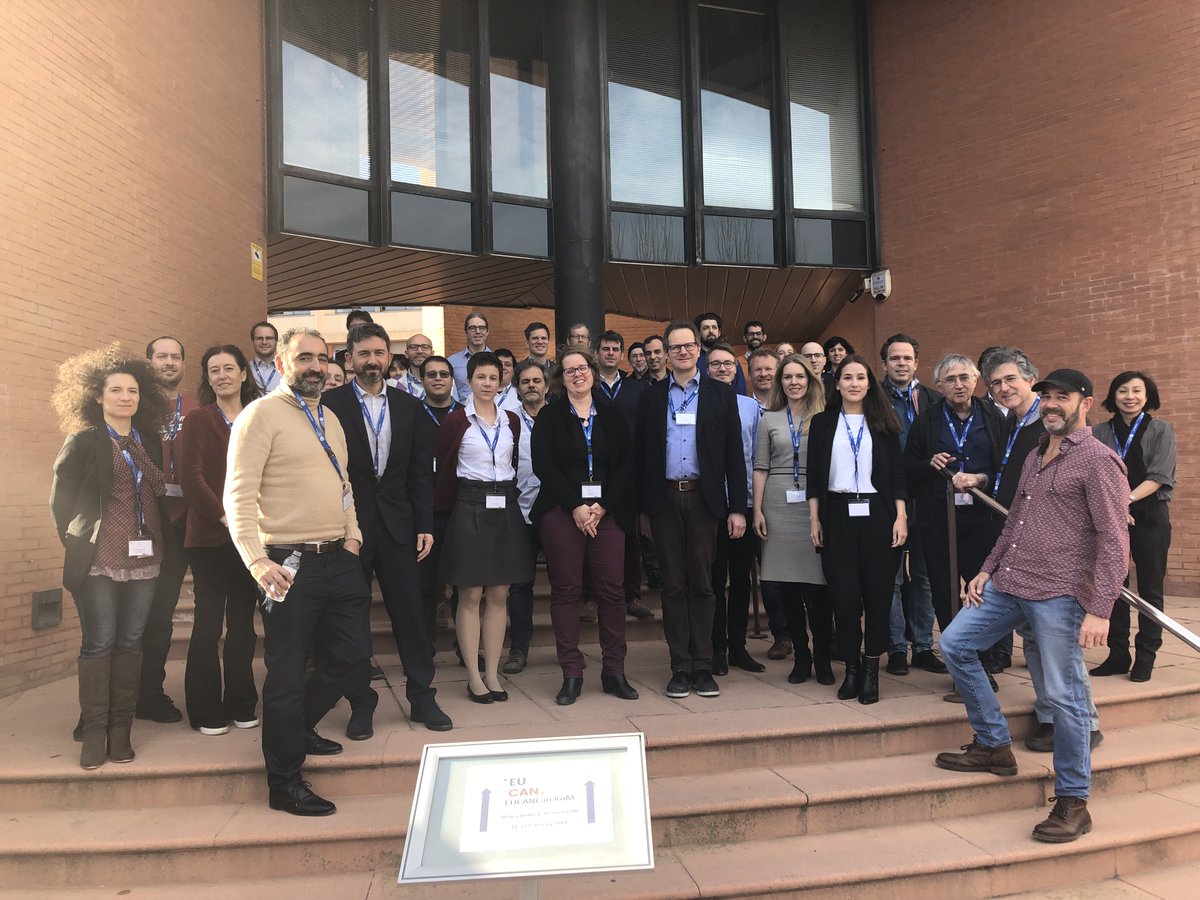
EUCANCan project kicked-off in a meeting held in Barcelona on Monday, February 11th at the Barcelona Supercomputing Center (BSC). The project aims to foster the re-use of genomic data related to different types of cancer for biomedical research. INB/ELIXIR-ES Nodes from the Barcelona Supercomputing Center (BSC), the Center for Genomic Regulation (CRG) and the Centro Nacional de Análisis Genómico (CNAG-CRG) are involved in this project. The project is funded by the European Commission and the Canadian Institute of Health research and coordinated by the BSC. EUCANCan has been recently chosen as the driver project by the Global Alliance for Genomics and Health (GA4GH).
The volume of genomic data related to cancer has exponentially grown during the last years, but it has done so in an uncontrolled way. The different methods with which each center generates, classifies and storages its data are the main bottleneck that researchers face when they need to extract knowledge from this huge volume of information. Very few research groups have the capacity to homogenize data coming from different studies to be able to group and revise them, and in so doing reaching new results. This causes that, in practical terms, massive data accumulation is not resulting in more possibilities to make new discoveries.
 The target of EUCANCan is to break with these dynamics by homogenizing and standardizing the cancer data sets of the centers that participate in this project, and establishing methods and processes that allow a more efficient use of data and that could be used as a reference model in genomic medicine internationally. During the four years of the project, it is expected that EUCANCan will process and provide the scientific community with around 30-35 thousand patient samples from different types of cancer, coming from different nodes involved in this project. Standardizing procedures and formats will let a combined data analysis to extract all the possible information and will boost, among others, the discovery of new biomarkers.
The target of EUCANCan is to break with these dynamics by homogenizing and standardizing the cancer data sets of the centers that participate in this project, and establishing methods and processes that allow a more efficient use of data and that could be used as a reference model in genomic medicine internationally. During the four years of the project, it is expected that EUCANCan will process and provide the scientific community with around 30-35 thousand patient samples from different types of cancer, coming from different nodes involved in this project. Standardizing procedures and formats will let a combined data analysis to extract all the possible information and will boost, among others, the discovery of new biomarkers.
The EUCANCan project will be carried out by a consortium with the participation of some of the world reference institutions of biomedicine genomics, including research centers, hospitals and experts on Law of Spain, France, Germany, The Netherlands and Canada.
